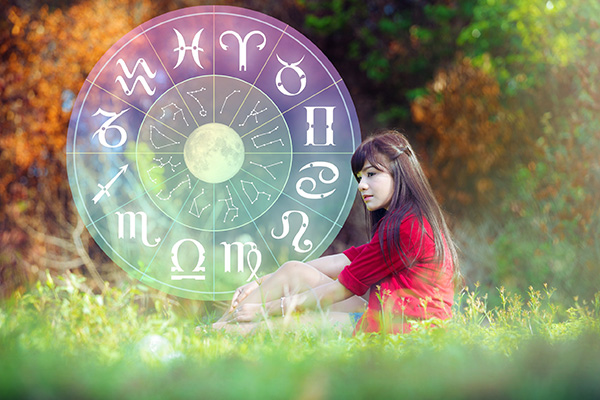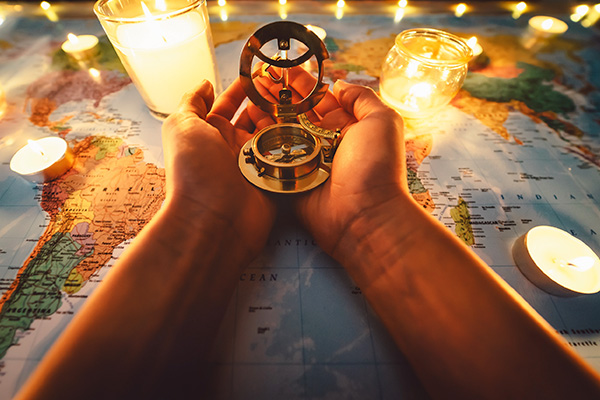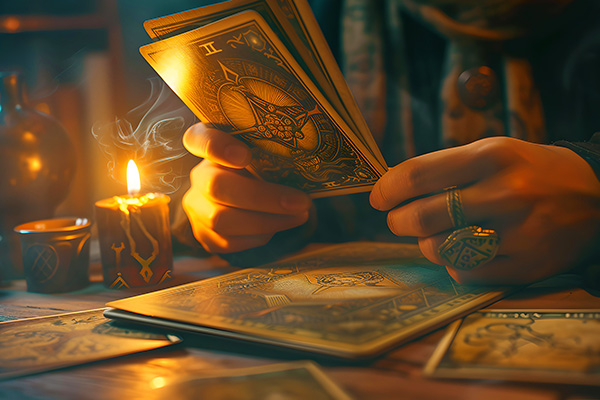 As a psychic medium, I have devoted decades to observing the profound and intricate path of grief.
As a psychic medium, I have devoted decades to observing the profound and intricate path of grief.
Throughout the years, I’ve discovered that grief takes on various expressions and takes many forms. It’s not solely confined to death and dying; it can stem from countless losses such as losing a pet, the conclusion of a relationship, a shift in life direction, job loss, or relocating from a cherished home.
My clients frequently express sentiments like, “There’s a void in my heart,” or “It feels as though my heart has been ripped apart.”
These phrases are more than mere figurative language. Grief can be so overwhelming that it feels akin to a physical wound — like a ‘heart attack’ of the spirit. Grief resonates throughout our heart, mind, body, and spirit, impacting all aspects of our existence.
One of the most crucial lessons I’ve come to understand is that grief is profoundly individual. Each person processes it in a different manner. There is no universal “right” way to grieve nor a predetermined timeline.
Some individuals may begin to feel a slight relief after a few weeks or months, while for others, the pain may extend for years or even decades. And that’s completely acceptable.
Grieving signifies that you loved deeply, cared earnestly, and formed significant connections. It’s about more than just saying farewell; it involves cultivating a new bond with their absence, one that honors the love in a different format.
Grief represents both a natural emotional response and a sacred journey. In spiritual terms, it’s a deep voyage of the soul — involving transformation rather than merely sorrow. It transcends emotional anguish; it touches the most profound facets of your faith, beliefs, and relationship with something larger than yourself.
The price of love is loss; and the cost of loss is grief – Yet the ache of grief is merely a shadow when contrasted with the agony of never having risked love ~ Hilary Stanton Zunin
In numerous spiritual beliefs, grief is regarded as a pathway to wisdom and growth. Some view it as the soul’s method of deepening its comprehension of love and impermanence, pushing one towards acceptance and renewal. Others perceive it as a sacred moment, where the essence of loss also embodies something significant — whether it’s the enduring love from those we’ve lost or the epiphany of life’s interconnectedness.
There’s also a mystical dimension to grief: in times of profound sorrow, individuals may become more spiritually aware and receptive to signs, dreams, or sensations that exceed rationality.
It’s essential to remember that we grieve not only for what we’ve lost but also for what never came to be. For instance, when a marriage dissolves, people may grieve the hopes they had for the relationship rather than accepting its reality. This too is a legitimate form of grief.
The Five Stages Of Grief
In her pioneering work On Death and Dying (1962), psychiatrist Elisabeth Kübler-Ross introduced the renowned Kübler-Ross model, which delineates the five stages of grief.
Denial – This is the initial reaction to loss, where we grapple with accepting reality. It acts as a psychological defense mechanism, fostering temporary emotional numbness to protect us from overwhelming sensations.
Anger – As the reality of the loss dawns, emotions transition to frustration and resentment. We may direct our anger towards ourselves, others, or the situation, looking for something or someone to blame.
Bargaining – In an effort to reclaim control or reverse the loss, we may attempt to negotiate with a higher power, with ourselves, or with others. Common thoughts include “If only I had acted differently…” or “Maybe if I change things, it will improve.”
Depression – The gravity of the loss becomes fully apparent, resulting in profound sadness, withdrawal, and reflection. This stage is often characterized by feelings of hopelessness, isolation, or contemplation of what has been lost.
Acceptance – Eventually, we arrive at a point where we cease to resist the reality of our loss. This doesn’t imply forgetting or feeling “fine” about it, but rather assimilating the experience into our lives and finding paths to advance.
However, it’s crucial to acknowledge that grief is predominantly personal — there is no preset timeline, and healing manifests differently for everyone. The five stages are not strictly sequential; we may navigate them in various orders or revisit certain stages multiple times. Grief can ebb and flow like the tides. One moment, we may feel acceptance; the next, we may find ourselves submerged in sorrow once more.
Triggers, such as a familiar melody, a specific scent, or a meaningful location, can unexpectedly transport us back to the depths of our anguish. Yet, these instances also provide chances for healing. They serve as sacred reminders of our ongoing connection to our lost loved ones.
Moving on after a loss doesn’t equate to forgetting. It involves learning to carry love in a new fashion. A good starting point is granting yourself permission to mourn at your own pace, free of judgment.
Grief resembles the ocean; it washes over us in waves, ebbing and flowing. Sometimes the waters are calm, and other times they are all-consuming. All we can do is learn to swim ~ Vicki Harrison
Charting Your Own Course Through Grief
The following are some suggestions to aid you in navigating grief on your own terms:
Honor your emotions – There is no single correct manner to grieve. Permit yourself to experience whatever feelings arise, whether they be sadness, anger, relief, or even unexpected joy. Don’t suppress your feelings; grief must process through you. Cry as needed. Laugh when possible. Embrace it all.
Grieve at your own rhythm – Grief does not adhere to a schedule. Take all the time you require, and resist any pressure to “move forward” before you’re ready.
Adapt to change – Loss frequently transforms our lives in unforeseen ways. Embrace your evolution, even if it feels strange at the outset.
Find purpose and significance – Whether through spirituality, creativity, therapy, or volunteering, seeking purpose in your loss can assist in steering you through the pain and towards healing.
Reach out and maintain connections – Even if solitude feels preferable at this moment, staying connected with supportive individuals can offer comfort and perspective. You don’t need to grieve in isolation. Contact friends, join a support group, or converse with someone who can relate.
Create personal rituals – Establishing rituals— such as lighting a candle, composing letters, visiting a significant site, or scattering ashes — can help preserve your bond with what was lost.
Engage in creative pursuits and constructive activities – Hobbies and crafts can serve as powerful mediums for processing grief. Try your hand at painting, drawing, pottery, sculpting, woodworking, DIY projects, knitting, crocheting, calligraphy, or journaling.
Honor memories by sharing stories. Look through photographs. Celebrate birthdays or anniversaries in a manner that holds meaning for you.
Listen to your body – Grief encompasses both emotional and physical dimensions. Nourish your body with healthy food, ensure you rest adequately, and gently move your body, even if it’s simply a brief stroll.
Practice self-kindness. Grieving is demanding. Treat yourself with gentleness. Don’t anticipate a rapid recovery; there will be challenging days. Extend to yourself the same kindness and patience you would show a dear friend.
Avoid making significant decisions. Refrain from major life changes in the immediate aftermath of a loss. Allow time for stabilization.
Spend time in nature or with animals. The natural environment and loving pets can provide grounding and calming influences for a grieving spirit.
Avoid major life decisions. When possible, hold off on significant choices in the immediate aftermath of your loss. Take time to regain your equilibrium.
Think about a mediumship session. A meeting with a reputable psychic medium could relay messages of love, peace, and closure from those who have passed. This connection has the potential to mend a grieving heart.
As a medium, I often have the honor of facilitating reconnections between clients and their loved ones in spirit. These encounters can be incredibly healing. Spirits frequently share messages of encouragement; they wish for us to live, find joy, and embrace tranquility. They remind us that they have not truly departed—they have merely transitioned to another realm.
Grief is a transformative odyssey. It reshapes our identities and perceptions of the world. However, it can also ignite profound spiritual awakening. May you grant yourself the grace to mourn and the bravery to heal. Always bear in mind that you are not alone.
|
 About The Author: Elizabeth About The Author: Elizabeth
Elizabeth’s abilities are a result of several generations of talent. She discovered her own gifts early on, distinguishing herself from most of those around her. Since then, she has refined and perfected a multitude of metaphysical practices, delivering hypnotherapy, Psychic Mediumship, Mysticism, and Hypno-Reiki to her clients in Maine and throughout various areas of the U.S. and Canada, where she travels. A pet lover, they serve as her greatest teachers, often contributing to readings alongside the Angels, Guides, and loved ones who offer clarity and insights for her clients. Elizabeth is also an author, brimming with spiritual wisdom to share, and is actively working on a book. If you desire to access her unique Psychic Wisdom, find peace, and receive insights for your highest good, you can reach Elizabeth at Psychic Access.
|
Grief is a shared human experience that we all encounter at some point in our lives. Whether it be the loss of a beloved individual, a job, a relationship, or a cherished dream, grief can be a daunting and overpowering journey. Nevertheless, it is also a sacred pathway that can lead to healing, growth, and transformation when approached with awareness and self-kindness.
Here are some suggestions on how to traverse the sacred journey of grief:
1. Allow yourself to experience your emotions: Grief is intricate and multifaceted, presenting itself in numerous forms, including sadness, anger, guilt, and even relief. It is vital to let yourself experience all of these feelings without judgment or suppression. By recognizing and accepting your emotions, you can begin to process and release them healthily.
2. Prioritize self-care: Grief can take a toll on you physically and emotionally, so it’s crucial to care for yourself during this challenging period. Ensure you eat healthily, exercise, get adequate rest, and engage in activities that bring you joy and comfort. Self-care can help you manage the stress associated with grief and preserve your overall well-being.
3. Seek support: Grieving is a deeply personal journey, yet it’s equally essential to seek support from others who can offer comfort, understanding, and empathy. Reach out to friends, family, support groups, or a therapist who can help guide you through your grief and provide a listening ear when needed.
4. Honor your loved one: If you are mourning the loss of someone dear, consider ways to commemorate their memory and legacy. This might involve creating a memorial, writing a letter, planting a tree, or participating in a charitable event in their name. By keeping their memory alive, you can find solace in knowing they will always be present in spirit.
5. Embrace mindfulness and self-compassion: Grief can be a surge of emotions, thoughts, and physical sensations that can sometimes feel overwhelming. By practicing mindfulness and self-compassion, you can foster a sense of presence, acceptance, and kindness towards yourself as you navigate the highs and lows of grief. Take time to breathe, meditate, journal, or engage in other self-soothing practices that can help you stay grounded and centered during this demanding time.
6. Be patient and gentle with yourself: Grief is a journey that requires time, patience, and self-kindness. It’s important to be gentle with yourself and allow your grief to unfold at its own pace. Remember that healing is not a straightforward process, and it’s normal to have good days and bad days. By being patient and kind to yourself, you can gradually navigate the phases of grief and discover peace and acceptance on the other side.
In closing, navigating the sacred journey of grief is a deeply personal and transformative experience that leads to healing, growth, and resilience. By allowing yourself to feel your emotions, prioritizing self-care, seeking support, honoring your loved one, practicing mindfulness and self-compassion, and being patient and gentle with yourself, you can navigate grief’s ups and downs with grace and courage. Remember that you are not alone in your grief and that there is light beyond the tunnel. Trust in the process, trust in yourself, and trust in the healing power of love and resilience. Continue reading →

















